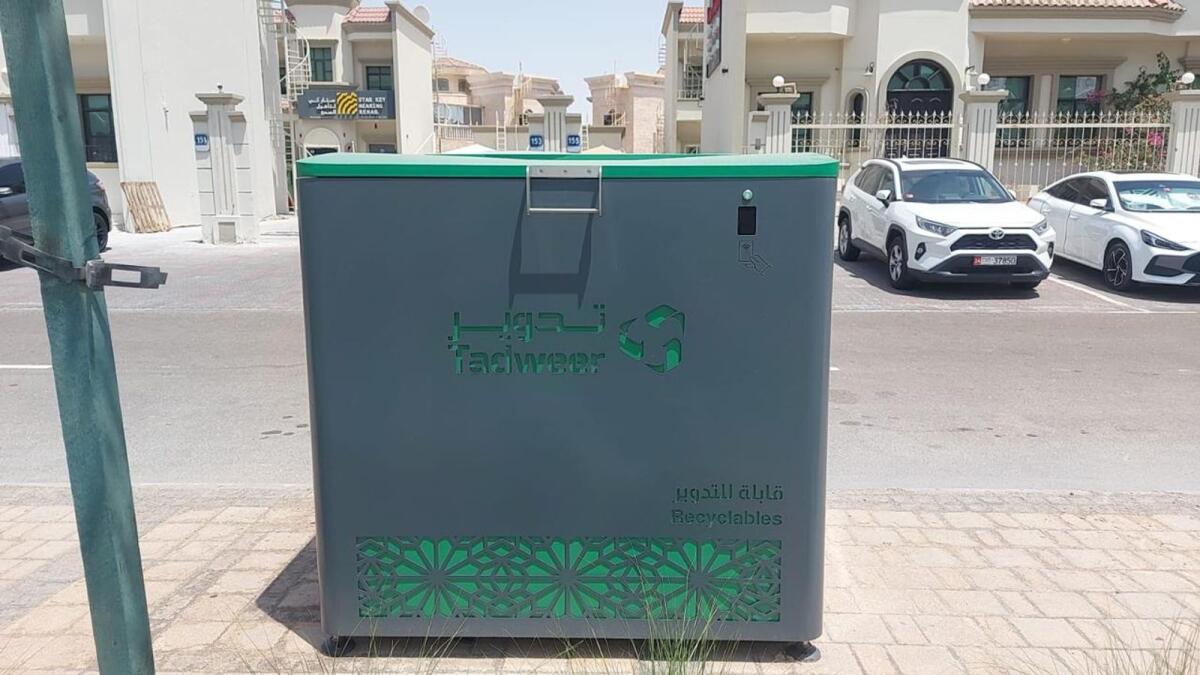Abu Dhabi’s Tadweer Group is currently conducting a trial of its high-tech smart bins, aiming to provide data on the amount and type of waste generated and better understand the requirements of communities. These locally-made bins utilize sensors and advanced technology to detect the type of waste being disposed of and monitor the fill level. By optimizing collection operations, Tadweer can efficiently empty the bins based on the data collected.
The trial run of the smart bins is currently taking place in selected locations in Abu Dhabi, with plans to expand in the future. Through integration with an official app, residents can register and create an account to use the smart bins. By scanning a barcode or QR code on the bin, residents can dispose of their waste, which is then detected and weighed. This information allows the Tadweer center to determine when the bin needs to be emptied.
Ollie Lawson, media and communications adviser at Tadweer Group, highlighted the capabilities of the smart bins, stating that they can track individual users, the amount, and types of waste generated. The sensors within the bins provide real-time data on the fill level, enabling waste collectors to empty them only when necessary, reducing the number of collection trips and cutting carbon emissions. This innovative waste management solution aims to improve overall efficiency and sustainability in waste collection processes.
By understanding the waste generation patterns of different communities, Tadweer aims to tailor waste management solutions accordingly. The trial is focusing on identifying the types of waste produced by various communities, such as those living in villas or residential buildings. With this localized knowledge, Tadweer can better manage waste based on specific community needs and consumption habits, leading to more effective waste management strategies.
The data collected from the smart bins will provide insights into waste disposal patterns, allowing for better planning of collection routes and the implementation of additional recycling infrastructure like reverse vending machines or extra recycling bins. By analyzing the data gathered during the trial run, Tadweer can make informed decisions on future waste management processes and systems. This data-driven approach will enable Tadweer to implement long-term solutions for efficient waste management and sustainability.
In conclusion, Tadweer’s trial of smart bins represents a step towards implementing innovative waste management solutions in Abu Dhabi. By leveraging technology to collect real-time data on waste generation and disposal, Tadweer aims to optimize its collection operations, reduce carbon emissions, and improve overall efficiency in waste management processes. Through a better understanding of community waste generation patterns, Tadweer can tailor waste management strategies to specific needs and improve sustainability in the region. The trial of smart bins holds promise for long-term solutions to enhance waste management practices in Abu Dhabi.































